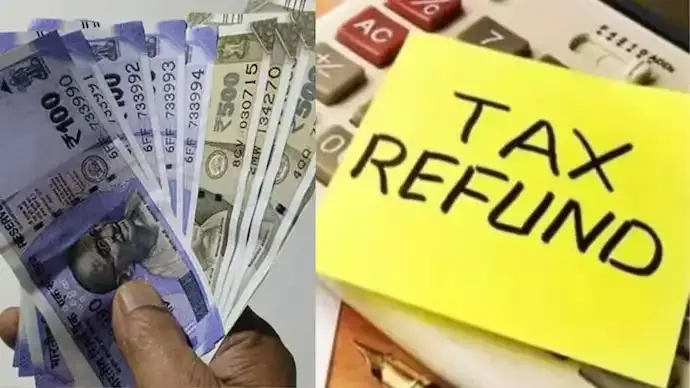Shopping cart
Your cart empty!
Terms of use dolor sit amet consectetur, adipisicing elit. Recusandae provident ullam aperiam quo ad non corrupti sit vel quam repellat ipsa quod sed, repellendus adipisci, ducimus ea modi odio assumenda.
Lorem ipsum dolor sit amet consectetur adipisicing elit. Sequi, cum esse possimus officiis amet ea voluptatibus libero! Dolorum assumenda esse, deserunt ipsum ad iusto! Praesentium error nobis tenetur at, quis nostrum facere excepturi architecto totam.
Lorem ipsum dolor sit amet consectetur adipisicing elit. Inventore, soluta alias eaque modi ipsum sint iusto fugiat vero velit rerum.
Sequi, cum esse possimus officiis amet ea voluptatibus libero! Dolorum assumenda esse, deserunt ipsum ad iusto! Praesentium error nobis tenetur at, quis nostrum facere excepturi architecto totam.
Lorem ipsum dolor sit amet consectetur adipisicing elit. Inventore, soluta alias eaque modi ipsum sint iusto fugiat vero velit rerum.
Dolor sit amet consectetur adipisicing elit. Sequi, cum esse possimus officiis amet ea voluptatibus libero! Dolorum assumenda esse, deserunt ipsum ad iusto! Praesentium error nobis tenetur at, quis nostrum facere excepturi architecto totam.
Lorem ipsum dolor sit amet consectetur adipisicing elit. Inventore, soluta alias eaque modi ipsum sint iusto fugiat vero velit rerum.
Sit amet consectetur adipisicing elit. Sequi, cum esse possimus officiis amet ea voluptatibus libero! Dolorum assumenda esse, deserunt ipsum ad iusto! Praesentium error nobis tenetur at, quis nostrum facere excepturi architecto totam.
Lorem ipsum dolor sit amet consectetur adipisicing elit. Inventore, soluta alias eaque modi ipsum sint iusto fugiat vero velit rerum.
Do you agree to our terms? Sign up

Taxpayers across India who’ve long struggled with delayed refunds or stuck corrections in their income tax returns (ITR) may finally have some relief. The Central Board of Direct Taxes (CBDT) has introduced new operational rules that empower tax authorities to correct minor but common ITR errors faster, ensuring quicker refund settlements.
The move, notified under the Income Tax Act, 1961, expands the authority of officers at the Centralised Processing Centre (CPC), Bengaluru — the hub responsible for processing online returns — to directly address and resolve return-related discrepancies.
Under the new system, Section 154 of the Income Tax Act has been updated to allow quicker rectification of apparent mistakes in filed returns. These include:
Errors in refund calculations
Missing or unaccounted TDS (Tax Deducted at Source) entries
Advance tax payments not reflected correctly
Incorrect interest applied on delayed refunds under Section 244A
Omitted deductions or reliefs that were eligible but not considered
Earlier, such issues often required taxpayers to raise manual complaints or wait weeks for resolution. Now, the CBDT’s revision empowers CPC officers to handle these cases digitally and proactively, often without the need for taxpayer intervention.
“If your refund is stuck due to a calculation error or mismatch in TDS, it can now be corrected faster and processed without unnecessary delay,” explained a senior tax official familiar with the changes.
The Commissioner of Income Tax at CPC Bengaluru will now have expanded powers to issue corrections and process refunds directly. This commissioner can also delegate responsibilities to senior officers such as Joint Commissioners, Additional Commissioners, and Assessing Officers to accelerate resolution timelines.
Since the CPC already manages India’s online ITR processing, the integration of error-correction authority is expected to eliminate redundant back-and-forth between regional tax offices and the central unit.
One of the biggest pain points for taxpayers has been the time lag between filing and refund issuance, often caused by minor mismatches or unverified entries. Even small discrepancies — such as missing challans or incorrect bank details — could lead to long delays, sometimes stretching months.
The new guidelines aim to reduce processing time, minimise bureaucratic hurdles, and enhance transparency. According to tax experts, this reform marks a significant step in the government’s push for “trust-based governance” in compliance systems.
“CBDT’s move ensures that technical or clerical mistakes no longer hold up refunds. It’s a practical step toward building a faster, digital-first income tax system,” said a tax consultant from Delhi.
The latest reform aligns with India’s broader goal of transforming its taxation process into a fully automated and taxpayer-friendly system. With the CPC already using AI-driven verification and risk-based assessment tools, empowering officers to fix minor issues quickly fits into the government’s “ease of compliance” vision.
Taxpayers are also encouraged to use the e-filing portal’s rectification option, which allows users to identify and submit correction requests for apparent errors under Section 154. With CBDT’s new framework, these digital rectifications are expected to move faster through the system.
India’s tax administration has witnessed several reforms in recent years — from faceless assessments to online grievance redressal. The latest rule change continues that trajectory by ensuring faster turnaround times and reducing the dependence on physical verification or lengthy appeals.
While complex disputes will still go through regular appellate channels, straightforward cases — such as refund miscalculations — will now be resolved much more efficiently.
For millions of taxpayers — salaried employees, freelancers, and small business owners — who wait months for refunds due to small technicalities, this change represents a long-awaited improvement in efficiency.
The government hopes that by simplifying corrections and refunds, it will not only reduce taxpayer frustration but also strengthen confidence in the digital tax ecosystem.
In an era where financial systems are moving toward automation, CBDT’s move underscores one simple principle — faster fixes mean fairer outcomes.
25
Published: Nov 10, 2025